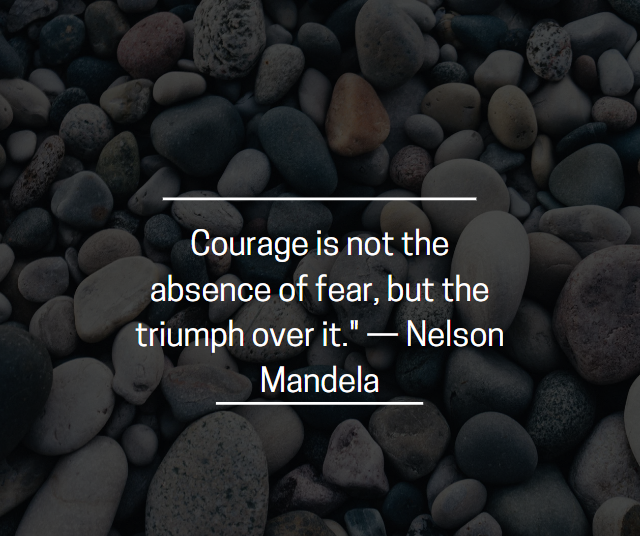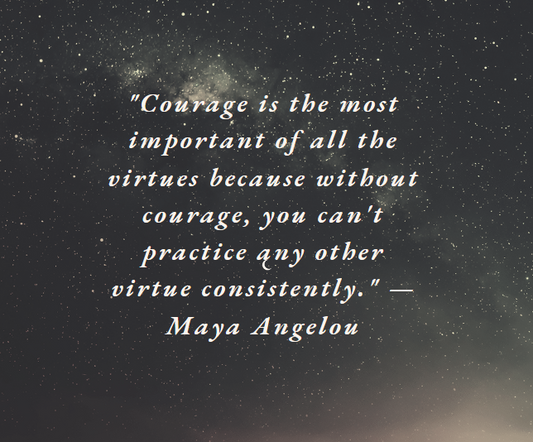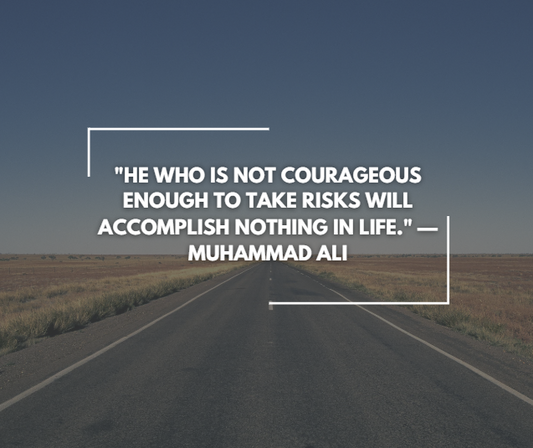Nelson Mandela's powerful assertion that “Courage is not the absence of fear, but the triumph over it” encapsulates a profound understanding of what it means to be courageous. This insight shifts the common perception of courage from being fearless to embracing fear and overcoming it. Mandela’s quote not only redefines courage but also offers a roadmap for personal and collective growth in the face of adversity.
Understanding Courage Through Fear
Traditionally, courage is often mistaken for a lack of fear. Many people believe that truly brave individuals do not experience fear. However, Mandela’s perspective introduces a more nuanced view. Fear is an inherent human emotion, a natural response to perceived threats or danger. It is neither positive nor negative; it simply is. Courage does not require the absence of fear but involves the conscious decision to act despite it.
Mandela’s life serves as a testament to this understanding of courage. Throughout his struggle against apartheid, Mandela faced numerous fears: fear of violence, imprisonment, and personal loss. Despite these fears, he continued his fight for justice and equality, demonstrating that courage is not about eradicating fear but about acting in spite of it.
The Nature of Triumph Over Fear
Triumphing over fear involves acknowledging its presence and then making a deliberate choice to confront and overcome it. This process requires resilience, determination, and often, a profound inner strength. Mandela’s enduring commitment to his cause, even during his 27 years of imprisonment, illustrates this principle. His courage was characterized by his ability to endure and persist in his efforts, despite the immense fear and uncertainty he faced.
The essence of triumph over fear lies in the ability to move forward even when fear is present. This means that one does not have to wait for fear to subside to take action. Instead, courage involves recognizing fear as a natural part of the process and using it as a motivator rather than a deterrent.
Practical Implications of Embracing Fear
Embracing fear and triumphing over it has practical implications in various aspects of life. For individuals facing personal challenges, this approach can lead to significant growth and self-discovery. Whether it’s overcoming a fear of public speaking, pursuing a new career path, or dealing with personal loss, confronting fear can lead to greater self-confidence and resilience.
In professional settings, leaders who demonstrate courage by tackling challenges despite their fears can inspire and motivate their teams. Such leaders foster an environment where risk-taking and innovation are encouraged, and setbacks are viewed as opportunities for growth rather than failures. This mindset not only enhances personal development but also contributes to organizational success.
The Broader Impact of Courage
Courage extends beyond personal and professional realms; it has a profound impact on societal and global issues. Historical figures like Nelson Mandela have shown that triumphing over fear can lead to significant social change. Mandela’s courage was instrumental in ending apartheid and promoting reconciliation in South Africa. His example underscores how individual courage can drive collective progress and inspire others to act bravely in the face of their own fears.
Moreover, courage often acts as a catalyst for collective action. When individuals come together, driven by a shared vision and a willingness to face fear, they can effect meaningful change. This collective courage has been evident in various social movements throughout history, where individuals and groups have stood up against injustice, despite facing significant risks.
Cultivating Courage
Cultivating courage involves several key practices. First, it requires self-awareness and the acknowledgment of one’s fears. Understanding the nature and source of fear is crucial for addressing it effectively. Second, setting incremental goals can help individuals build courage gradually. By facing smaller fears and achieving success, individuals can build the confidence needed to tackle larger challenges.
Lastly, maintaining a growth mindset is essential. Viewing challenges as opportunities for learning and growth can shift the perspective on fear and encourage proactive behavior. Courage is as much about mindset as it is about action.
In conclusion, Nelson Mandela’s insight into courage as the triumph over fear rather than its absence offers a profound and practical understanding of bravery. It highlights that fear is an inevitable part of life, but it is our response to fear that defines true courage. By acknowledging and confronting fear, individuals can demonstrate resilience, inspire others, and drive meaningful change.





